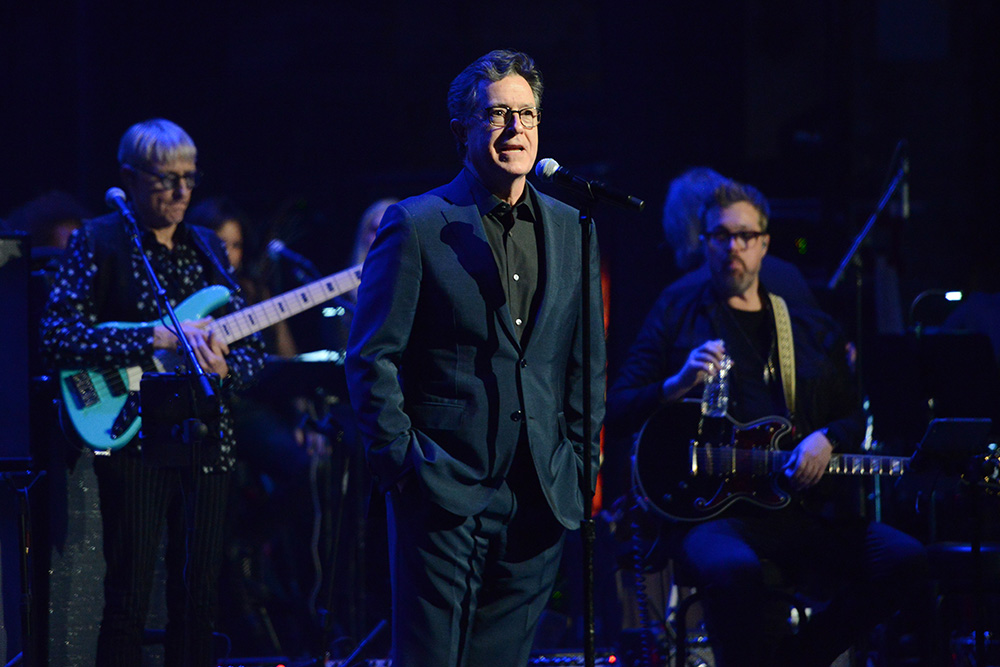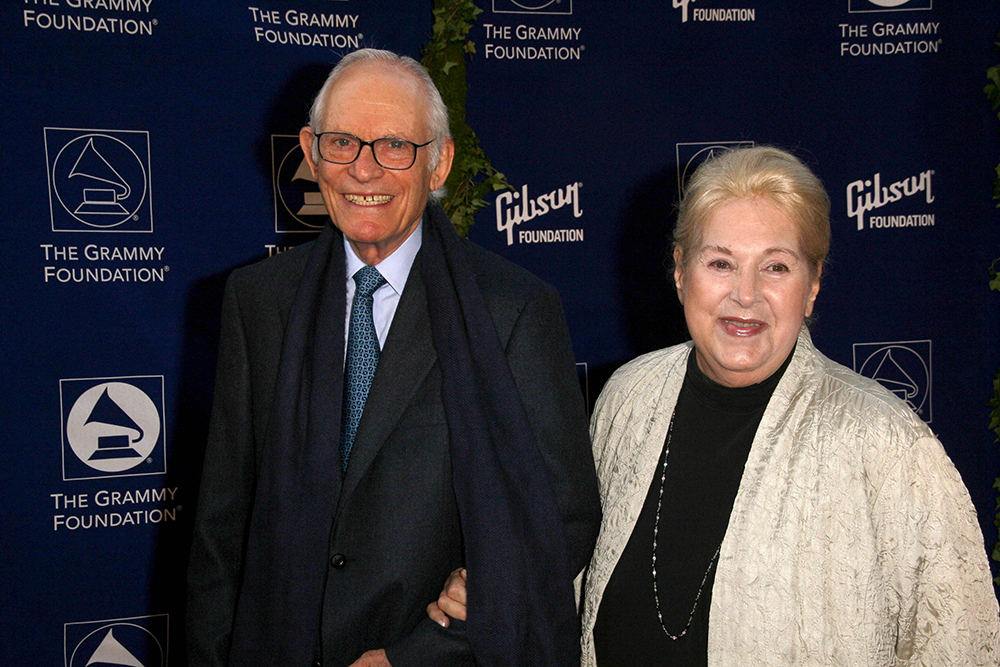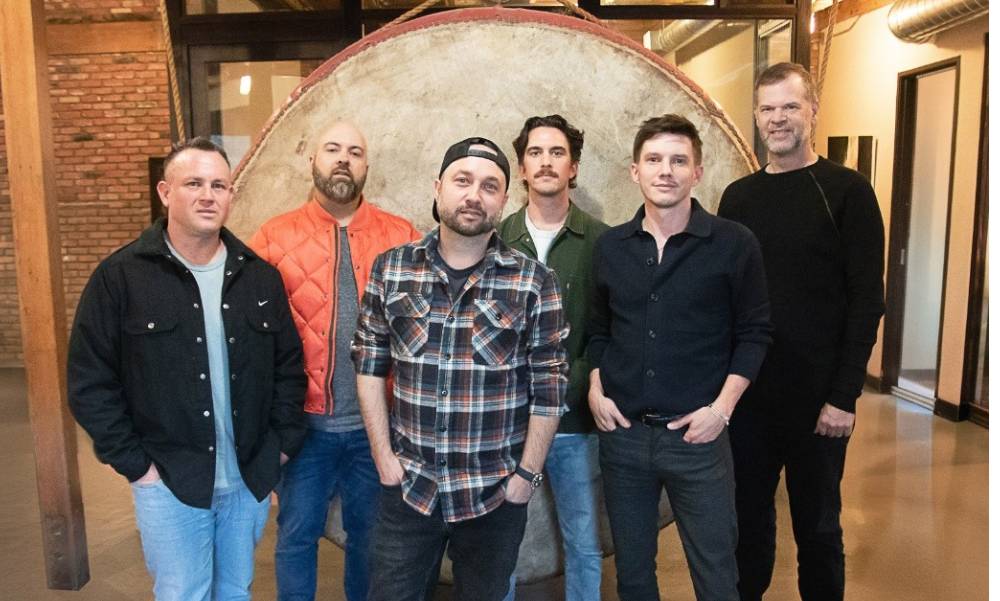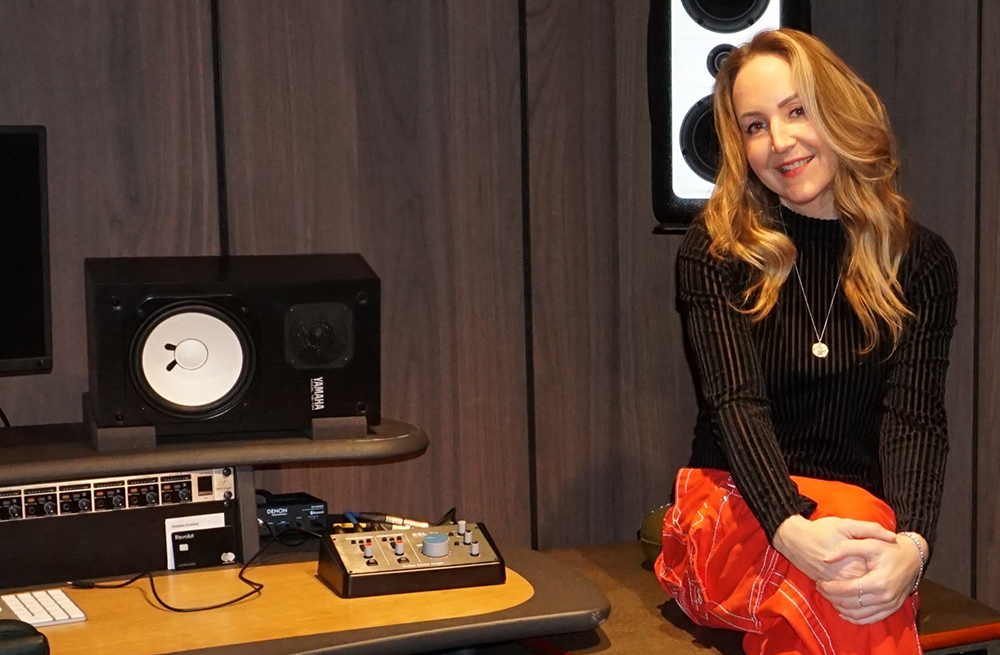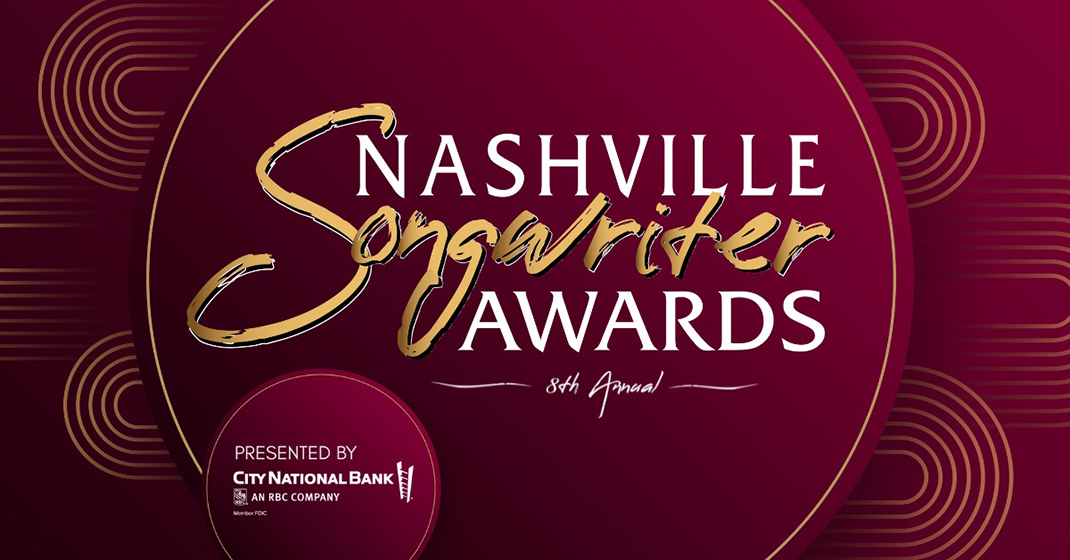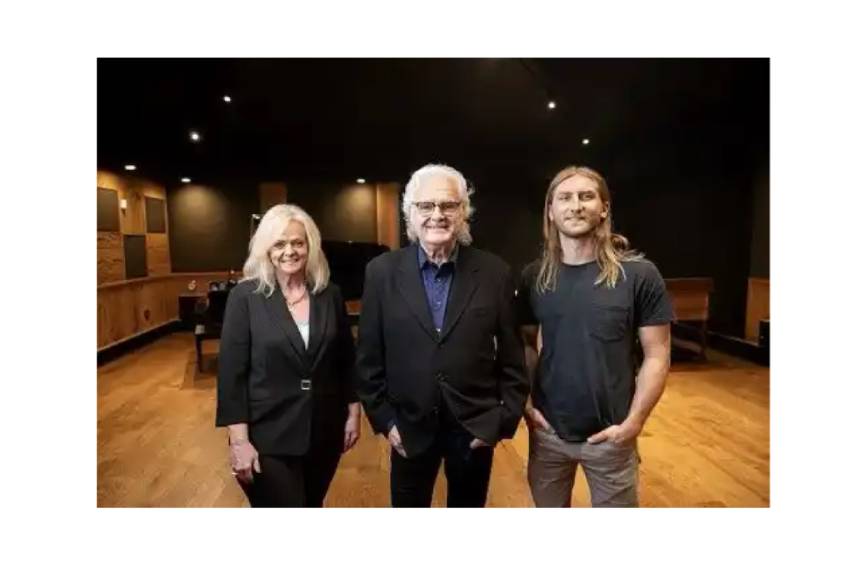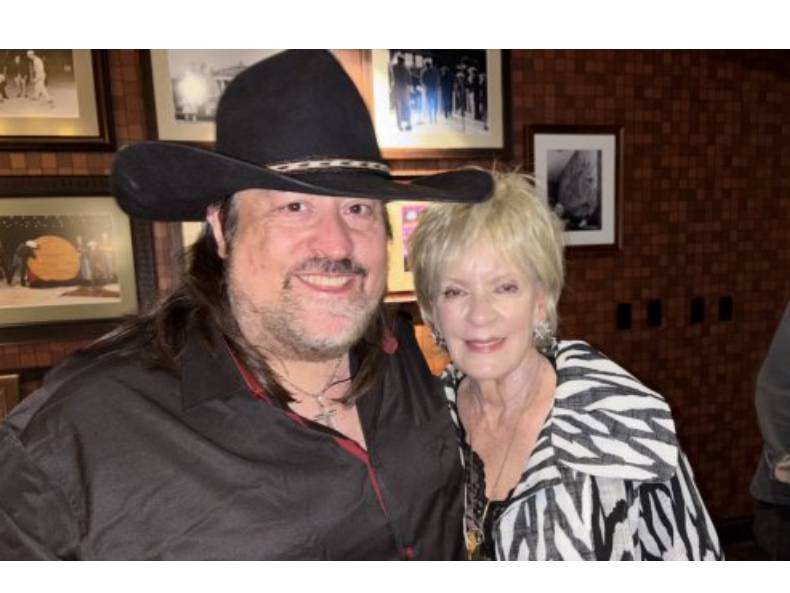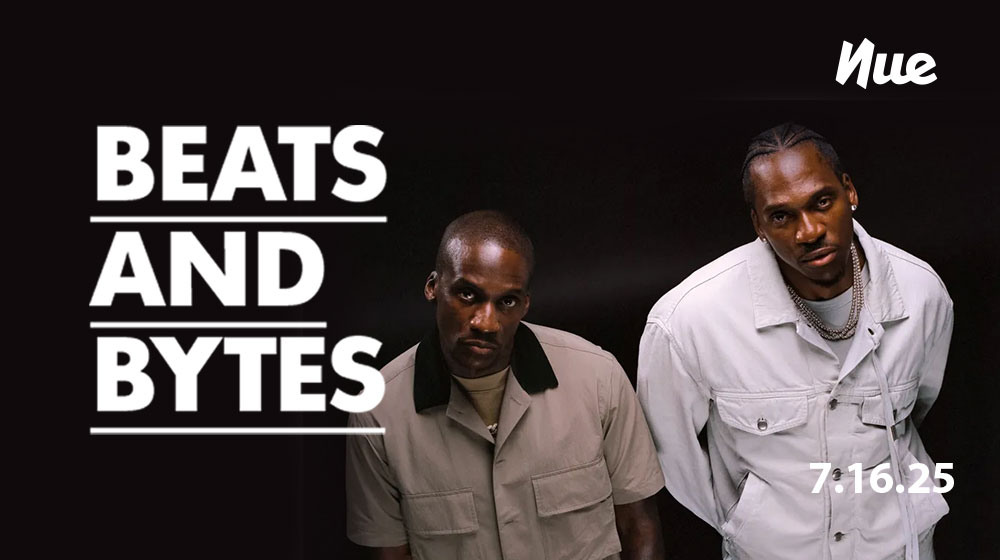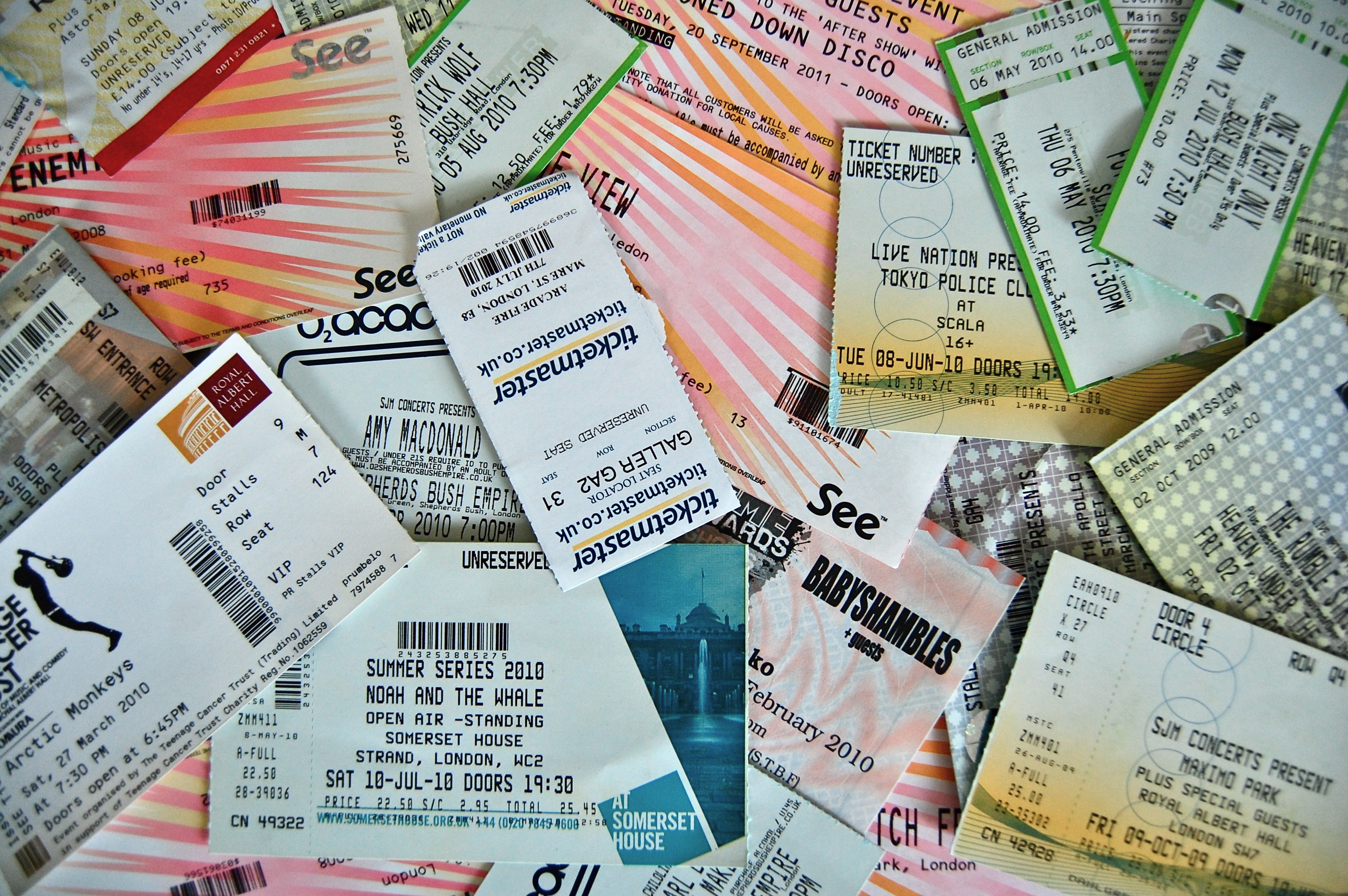
(CelebrityAccess MediaWire) — Recently, Troy Germano of the Studio Design Group was approached by old friend, Clive Davis, chairman and CEO of BMG North America, regarding the "Clive Davis Department of Recorded Music" at New York University's Tisch School of Arts. Davis wanted Germano to design and build a studio for a university course, which would provide students with a well-rounded background in the inner workings of the recording industry. Wanting the classroom facility to be as close to high-end professional studios as possible, Germano brought in longtime colleagues Dave Bell of Whitemark LTD in England and Dave Malekpour of Professional Audio Design (PAD).
"The idea was to build an educational facility for recording that also had a strong emphasis on the overall studio process and business," says Germano. "We wanted the students to get a good cross-reference of what goes on in the record industry from how an artist is signed and lead by an A&R person, to the technical aspect of engineering as well as day-to-day studio life."
Germano knew that the gear needs for this type of educational environment would be a little different than in a normal recording studio. Solid State Logic's 24-channel XL 9000 K Series SuperAnalogue Series console made the most sense because NYU wanted SSL quality, without overwhelming the students with an intimidating 96-channel console . "The idea of the school is to have a hybrid of both analog and digital," says Germano. "The marriage of ProTools HD with the SSL console is the right combination for enabling students to acquire practical experience."
Known for its high-quality, professional service throughout the entire design, construction and start-up process, PAD and its equipment expertise were needed for this project. Malekpour and his team aided with the equipment selection, provided all of the gear (with the exception of the SSL console that was supplied by SSL themselves), installed it and also provided some training on the ProTools set-ups.
"After a great experience while working with the Tisch School about a year ago when we sold them an SSL 4040G+ console for their music department, we were excited to be a part of their new project which accrued this level of equipment in a school setting," Malekpour says. "We are happy about our relationship with the people at the Tisch School and would like to continue helping them with anything they need."
PAD continues to service and support this facility as it begins its operation. "When the project is over and the school has to function on its own, Dave and his team are still there," says Germano. "He has always had an ongoing relationship in terms of maintenance and technical support, which is often something you don't see from other equipment dealers." –Bob Grossweiner and Jane Cohen
 O'Jays Lose Bid to Suppress New Album
O'Jays Lose Bid to Suppress New Album
 PHILADELPHIA (AP) — Three decades after they sang that money was "the root of all evil," The O'Jays lost a bid to block their former record label from cashing in on songs the soul group recorded, but didn't think were good enough to release.
PHILADELPHIA (AP) — Three decades after they sang that money was "the root of all evil," The O'Jays lost a bid to block their former record label from cashing in on songs the soul group recorded, but didn't think were good enough to release.
A federal judge lifted an injunction that had briefly stopped Philadelphia International Records from distributing "Together We Are One," a new album of unreleased tracks recorded by the O'Jays in the early 1980s.
O'Jays founding members Eddie Levert and Walter Williams had argued in a suit filed in Philadelphia on April 2 that the songs were "stale and artistically inferior," and that releasing them now would hurt their legacy and their ability to tour.
U.S. District Judge R. Barclay Surrick disagreed, saying in an opinion signed on April 9 that a contract signed by the group in 1979 appeared to give Philadelphia International Records unlimited rights to release the songs.
He also expressed some doubt that the album would hurt the O'Jays, whose nine platinum and 10 gold records included the hits "Love Train" and "For the Love of Money," which is now being used as the theme for Donald Trump's television series, "The Apprentice."
"It appears to us that the dispute between these parties has more to do with the financial aspects of their relationships than their professional standing," Surrick wrote.
The ruling doesn't entirely kill the lawsuit, but will allow the album to go on sale as planned. Some 54,000 copies had already been distributed when the singers sued.
Philadelphia International Records co-founder Kenny Gamble chalked up the dispute to creative differences.
"The O'Jays, listen, they are special," he said. "I think (the album) is going to be an asset to the O'Jays and the public is going to get some beautiful songs."
At issue are recordings the O'Jays made during the later stages of a lengthy and extraordinary collaboration with Philadelphia International Records and its founders, Gamble and Leon Huff, who wrote many of the act's hits.
The O'Jays sometimes recorded as many as 15 songs for consideration on each album, but usually kept only half for the final cut. Until now, the rest gathered dust in the record company's vaults.
Gamble said space limitations on vinyl records, not poor quality, kept the songs from being released. He said the label was considering releasing similar collections of unreleased music by Philadelphia International artists, including Lou Rawls and Harold Melvin & the Blue Notes.
"We have a whole vault that is full of stuff like this," he said. "I think that it is great product."
Attorneys for Levert and Williams declined to discuss the case Tuesday, other than to say they would continue to pursue the lawsuit.
The suit also alleged that Philadelphia International Records has yet to pay the O'Jays a dime in royalties. According to the pair, the company maintains that it has yet to recoup the cost of advances paid to group members.
 U.S. Music Sales Turnaround Continued In 1Q
U.S. Music Sales Turnaround Continued In 1Q
 LOS ANGELES (AP) — Online file-sharing and other digital piracy persist, but a gradual turnaround in U.S. music sales that began last fall picked up in the first quarter of this year, resulting in the industry's best domestic sales in years.
LOS ANGELES (AP) — Online file-sharing and other digital piracy persist, but a gradual turnaround in U.S. music sales that began last fall picked up in the first quarter of this year, resulting in the industry's best domestic sales in years.
Overall U.S. music sales — CDs, legal downloads, DVDs, etc. — rose 9.1 percent in the first three months of the year over the same period in 2003, according to Nielsen SoundScan.
Album sales were up 9.2 percent. Sales of CDs, which represent 96 percent of album sales, rose 10.6 percent. For the first time since 2000, two recording artists — Norah Jones and Usher — managed to sell more than 1 million copies of their albums in a single week.
"We've had a big run so far," said Geoff Mayfield, director of charts and senior analyst for Billboard Magazine. "Because we've had three years of erosion, at least for the first eight months of the year, it will be relatively easy for the industry to post increases."
The sales data are a bolt of encouragement to an industry hit by a three-year sales slump it blames largely on file-sharing. The downturn prompted a wave of restructuring by record companies and thousands of layoffs.
Cary Sherman, president of the Recording Industry Association of America, called the first-quarter figures "good news," but cautioned that the results were measured against a dismal period.
"The numbers of 2003 were down about 10 percent to 12 percent from the year before," Sherman said. "If we didn't have that kind of increase it would be really terrible."
U.S. album sales declined annually in the three years following 2000, the biggest year since Nielsen SoundScan began tracking U.S. music sales.
In 2001, sales were down 3 percent. The next year, sales dropped 11 percent. Last year, until September, sales were down 8.5 percent, but the pickup in sales at the end of the year narrowed the total decline for 2003 to less than 4 percent.
The burgeoning online music market accounted for the sale of more than 25 million tracks between January and March, eclipsing the 19.2 million tracks purchased in the last six months of 2003, according to Nielsen SoundScan.
Stores also saw gains. Chain stores' music sales were up 7 percent, while independent music retailers saw a 3 percent increase. Discount chains such as Wal-Mart, Target and Kmart posted a 13 percent jump in sales compared to the same period last year, according to Nielsen SoundScan.
"There were a couple of major releases that certainly pushed this quarter," said Jesse Klempner, owner of Aron's Records in Hollywood. "It's been down the last two years, this is an upswing."
Industry observers said no single factor has driven the turnaround.
Mayfield sees similarities with the industry's slump 20 years ago.
Sales of disco music dried up after the dance scene fell out of vogue in the early 1980s. In the late 1990s, the Backstreet Boys, 'N Sync and Britney Spears drew millions of teenage fans who had been out of the music marketplace, but sales didn't keep up as the audience got older.
"That music was hot and nothing moved in to replace it," Mayfield said.
He also draws comparisons between the loss of eight-track sales in the early 1980s and the more recent phasing out of cassettes, a format that provided customers with a cheaper alternative to CDs.
The early 1980s and the early part of this decade were also marked by economic downturns. Conversely, the music industry was better able to weather the recession in the early 1990s because of CD sales driven by consumers replacing their vinyl record and cassette tape collections.
Still, the recording industry has focused on Internet piracy, and its trade group cites surveys that indicate the number of people engaging in file-sharing has declined since the group began suing computer users.
But other research shows millions continue to download music, movies and software over peer-to-peer networks.
A recent study by two professors at Harvard University and the University of North Carolina at Chapel Hill may suggest how the industry's sales could be improving amid file-sharing.
The study, conducted over 17 weeks in the fall of 2002, was based on data compiled in the user logs of two OpenNap servers that host traffic by U.S. users of file-sharing programs including WinMX.
The researchers plucked 680 songs on albums by artists like Eminem and compared how often their songs were downloaded on the network to their weekly sales figures. The authors concluded that file-sharing has a statistically insignificant impact on record sales.
The findings are disputed by other researchers whose studies, mostly based on consumer surveys and willing monitoring of computer users, have shown that music fans who download songs for free pay for music less often.
For his part, Klempner laughs at the assertion that file-sharers don't hurt music sales.
"I've seen no evidence in our store to support that," he said. "I've had people walking in here saying 'I used to spend $300 a year on music and now I don't need to.'"




















